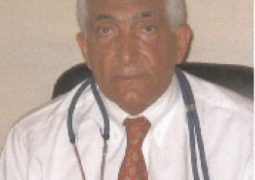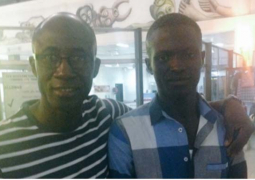Experts from AU Member States are meeting in Windhoek, Namibia to, among others, identify the major effects of climate change on health in Africa and to support strong actions to mitigate its impact. The experts meeting is being held in the run up to the 5th Conference of African Ministers of Health (CAMH5) to be held from 17- 21 April, also in Windhoek.
In addition, the experts, who are meeting under the umbrella of the African Union, are considering improved action towards more effective implementation of commitments for the promotion of health in Africa. They are also sharing experiences on ongoing health programmes and activities at national and regional levels as well as reviewing progress in the implementation of commitments made by African leaders.
Today’s opening ceremony of the experts meeting was addressed by the Namibian Minister of Health and Social Services Mr. Richard Kamwi who gave a first-hand account of the climate related health challenges that his country is facing. He noted that;
“Namibia is faced with this challenge (of climate change) that it has not experienced since independence. The whole northern and north eastern regions of the country are affected by floods that have claimed many lives; most schools are closed and more than 50 health facilities including clinics and outreach service points are inaccessible. The consequences of this are unimaginable”.
In this regard, the Minister urged the experts to come up with an action oriented declaration to address the climate related health challenges as well as other initiatives related to HIV/AIDS prevention, treatment, care and support.
The African Union’s Director of Social Affairs Dr Olawale Maiyegun underlined the importance of the meeting by noting that;
“The rising frequency of extreme climatic events such as floods and droughts renders developing countries vulnerable to increasing prevalence of and mortality from infectious diseases that have several negative consequences: decreasing economic productivity, increasing medical costs, and taxing already tenuous health care systems in poor countries”.
But, the Director contended that the challenges are not insurmountable and the African Union will be taking the recommendations from the experts meeting, to improve the health of the people of the Continent, particularly vulnerable groups.
Apart from the theme of the conference, the experts meeting will also have to deal with a number of other important issues. These include consultations on Universal Access on HIV/AIDS Prevention, Treatment, Care and Support. It is expected that after consideration by the experts, a Common African Position will emerge that will guide the African delegations to the High Level Meeting on Universal Access in New York in June 2011.
The experts meeting will also discuss the Sexual Reproductive Health and Rights (SRHR) policy framework which is aimed at accelerating action on the attainment of the MDGs, particularly those related to health, including MDGs 4, 5 and 6, as well as the Report on the End of the Decade Review of African Traditional Medicine.



